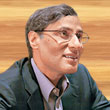That is not true democracy.
2016/02/02 10:11:24 網誌分類: 生活
Some of my other friends have also told me recently that people are saying I have become pro-establishment and no longer support democracy. I always laugh when I hear this. I tell them I voted for Barack Obama, a very liberal democrat, both times he ran for president. It is true that I no longer hold in high regard some of the people in the democracy camp. To hold someone in high regard means to respect and like that person. I think many people in the so-called democracy camp do not even understand the true meaning of democracy. If I criticize some of the things they say or do, they say I do not support democracy and have become pro-establishment. This is nonsense. True democracy means I can criticize Hong Kong's democracy camp and still support democracy.
For example, does it mean I oppose democracy and have become pro-establishment just because I do not support endless (never-ending) filibusters in the Legislative Council? Of course not. Does it mean I have become pro-establishment if I say it was wrong for hundreds of students to stop Hong Kong University Council chairman Arthur Li Kwok-cheung from leaving last week after a council meeting? Of course not. Hong Kong's democracy camp wants people to support everything they do. People who refuse are called pro-establishment. That is not true democracy.
* * *
上星期,我跟好友陶傑在電話談了許久。大多人開始談話時,都會寒喧幾句(exchanging pleasantries)。習語exchanging pleasantries 的意思是有禮地寒喧,說些客套說話。但陶傑和我鮮有寒喧(exchanging pleasantries),一談就是直入嚴肅(weighty)話題。 Weighty解作很重,例如很重的行李就是a weighty suitcase。但 a weighty issue 是解沉重、很重要或嚴肅的議題。內地官員為何要扣留書商李波,至今懸而未解,這就是個weighty issue。陶傑和我談了幾個嚴肅的(weighty)政治議題。他接着告訴我,許多人在說我變成了pro-establishment——是個香港習語,意思是說我支持香港及中央政府。
最近也有其他朋友跟我說,人們在說我變成了親建制派(pro-establishment),不再支持民主。我聽到總是一笑置之。我告訴他們,奧巴馬是個非常擁抱自由主義的民主黨員,他兩次競逐總統之位,我都將票投給他。確實,我對某些泛民陣營的人士,不再像從前一般的尊敬(hold in high regard)。To hold someone in high regard 意思是推崇備至、喜愛有加。我認為在所謂的泛民營內,許多人也並不真正明白民主的真義。若我批評他們所說或做的事,他們便說我不再支持民主,變了做親建制(pro-establishment )。這根本是胡說八道。真正的民主是我可以批評香港的泛民派,同時仍然支持民主。
譬如,是否純粹因為我不支持立法會那無止境(endless)的拉布,就代表我反對民主而變成親建制(pro-establishment)了呢?當然不是。若我說上星期港大校委會會議結束後,數以百計的學生阻止主席李國章離開是錯的,這又是否代表我已變成親建制(pro-establishment)了呢?當然不。香港的泛民派希望大眾要支持他們所做的任何事,拒絕的人就被稱為親建制派(pro-establishment)。那就不是真民主了。
mickchug@gmail.com
中譯:七刻
Michael Chugani 褚簡寧
回應 (0)
我要發表

